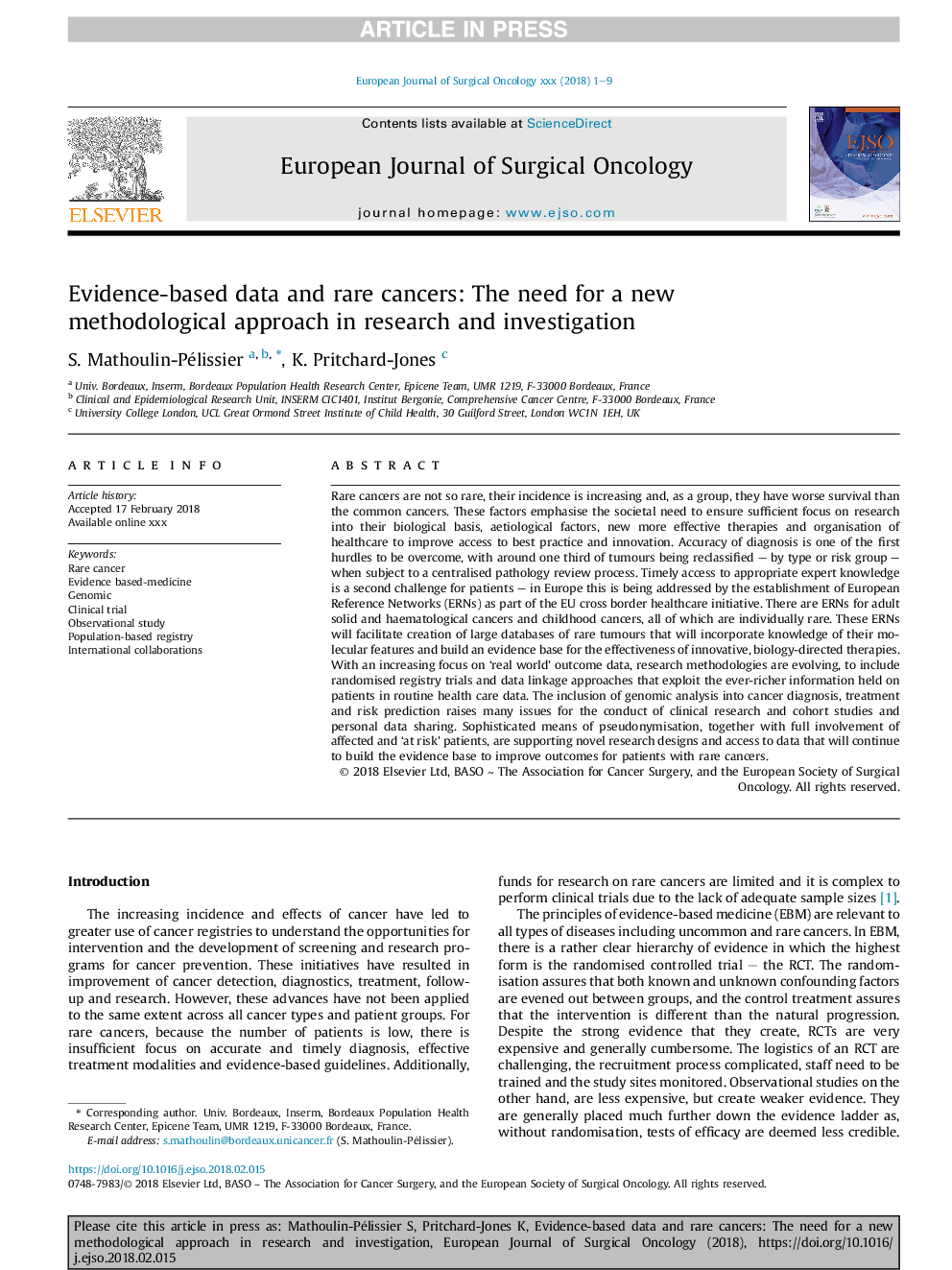ترجمه فارسی عنوان مقاله
داده های مبتنی بر شواهد و سرطان های نادر: نیاز به یک روش جدید روش شناختی در تحقیق و تحقیق
عنوان انگلیسی
Evidence-based data and rare cancers: The need for a new methodological approach in research and investigation
| کد مقاله | سال انتشار | تعداد صفحات مقاله انگلیسی |
|---|---|---|
| 153106 | 2018 | 9 صفحه PDF |
منبع

Publisher : Elsevier - Science Direct (الزویر - ساینس دایرکت)
Journal : European Journal of Surgical Oncology, Available online 2 March 2018
ترجمه کلمات کلیدی
سرطان نادر، پزشکی مبتنی بر شواهد، ژنومیک، کارازمایی بالینی، مطالعه مشاهده شده، رجیستر مبتنی بر جمعیت، همکاری های بین المللی،
کلمات کلیدی انگلیسی
Rare cancer; Evidence based-medicine; Genomic; Clinical trial; Observational study; Population-based registry; International collaborations;

